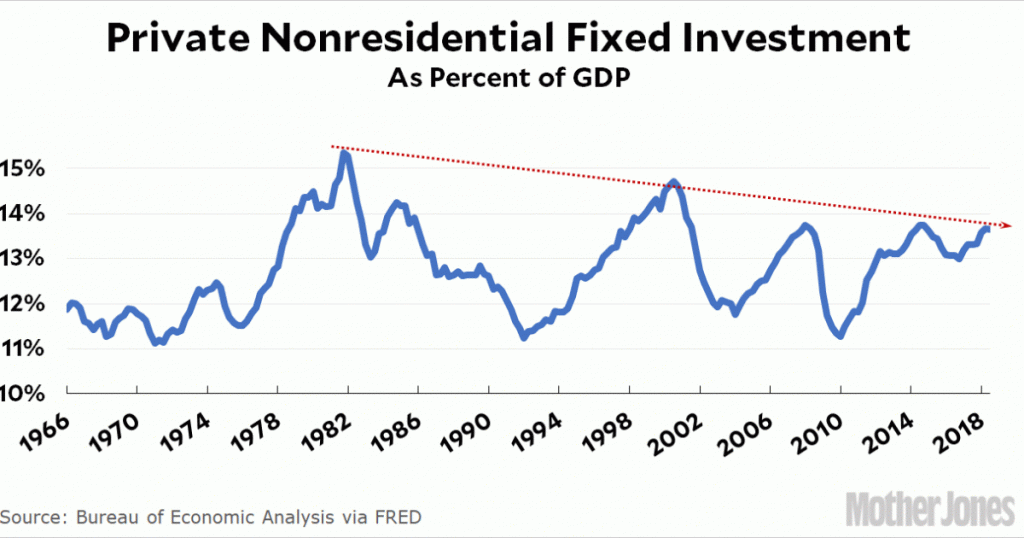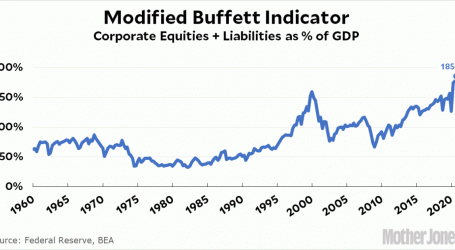Should We Rein in Stock Buybacks?
Looking for news you can trust?Subscribe to our free newsletters.
James Pethokoukis thinks Democrats should stop demonizing stock buybacks:
In a jointly written New York Times op-ed, Sanders and Schumer tout their new bill that would prohibit corporations from buying back stock — there were some $1 trillion in repurchases last year — unless they “invest in workers and communities first.” And by “invest,” they mean higher pay, including a $15 minimum wage and more health and retirement benefits. It’s a proposal of breathtaking audacity. The two senators are charging that Corporate America is badly broken — and has been so for decades — and politicians need to fix it. Indeed, only they can fix what has “become an enormous problem for workers and for the long-term strength of the economy.”
I doubt that Schumer and Sanders have the right idea here. The problem is that stock purchases are merely a symptom of a larger problem: corporate America is investing steadily less in ordinary expansion because they don’t think future demand will justify it. As a result, they build up mountains of cash and then spend it on nonproductive things like mergers and stock buybacks.
Is that a fair summary? Maybe. Here’s a look at one of the most common ways of measuring corporate investment:
This represents investment by corporations in fixed capital like factories and buildings. As you can see, it’s been on a steady decline since 1980. There are a few possible conclusions you can draw from this:
Yikes! Corporations are demonstrating a steadily dimmer view of our economic future.
Settle down. There was a big spike in the 70s and we’re now slowly returning to the postwar average. During the 60s, an investment rate of 12 percent indicated huge faith in the future, so why should we feel so dismal about a 14 percent rate today?
Look elsewhere. Old school fixed capital is not really a good measure of investment these days. Instead, we’re investing more in human capital. These humans all need fixed capital to do their jobs (computers, software, etc.), but not as much as a widget factory producing tangible goods. The problem is this should ultimately show up as greater spending on R&D, and it hasn’t:
I have no firm opinions to offer, but my tentative opinion has long been Door #1: corporations are investing less because they don’t see lots of good growth opportunities. Banning stock buybacks won’t change this. It’s like pushing on a string. Instead, we need to figure out what we can do to make future demand look brighter even as our society ages.
Green New Deal, anyone?





